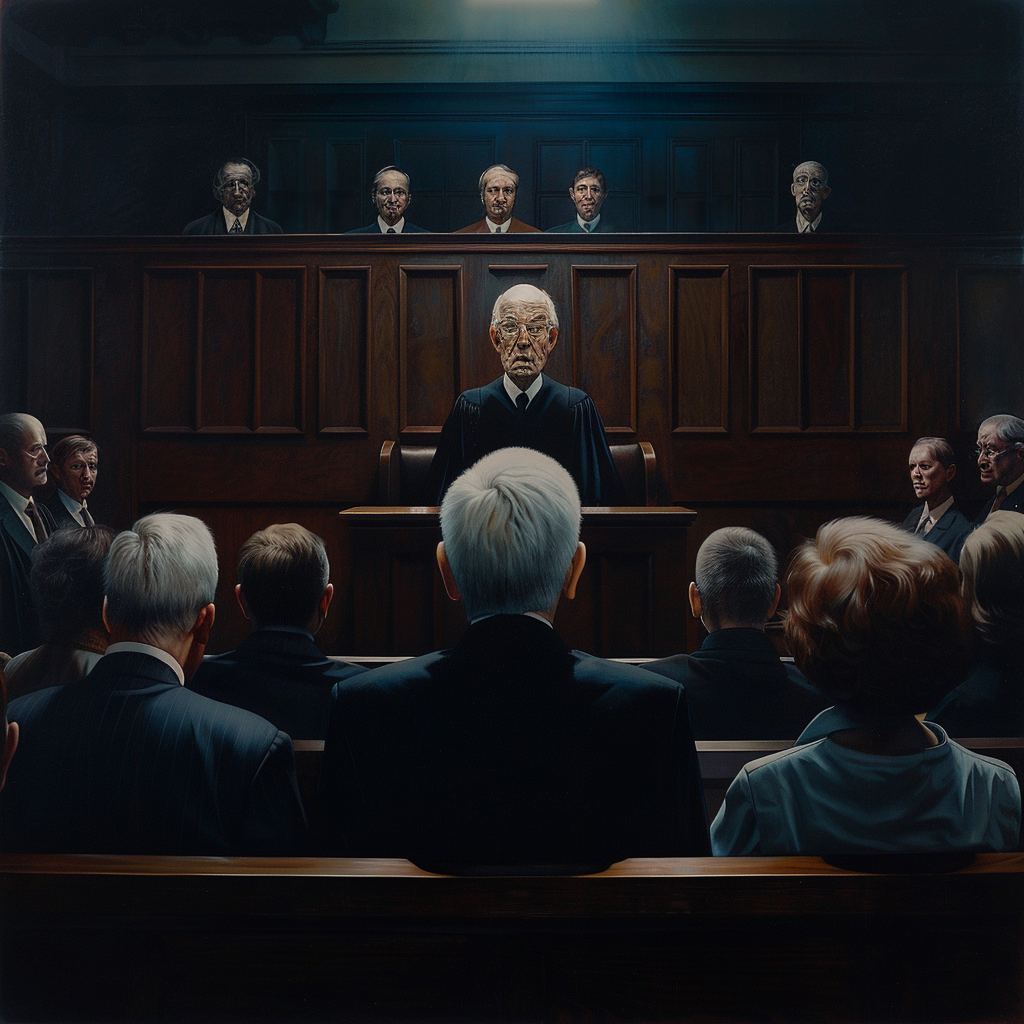For decades, the Chevron deference doctrine has been a shield for corruption in our legal system, allowing judges to act as mere extensions of powerful agencies rather than impartial arbiters of the law. This era of judicial complacency and corruption is now being challenged by a landmark Supreme Court decision that could reshape our fight for integrity and accountability in the justice system.
Background: The Chevron Doctrine (1984)
The Administrative Procedure Act (APA) establishes a private right of action to challenge federal agency actions. The APA empowers courts to review and invalidate agency actions found to be “arbitrary,” “capricious,” or “in excess of statutory jurisdiction, authority, or limitations.” Final regulations issued by federal agencies through standard notice-and-comment rulemaking are generally subject to judicial review under the APA. However, in reviewing those regulations, courts have typically given federal agencies some degree of deference.
Most famously, in its 1984 decision *Chevron U.S.A., Inc. v. Natural Resources Defense Council, Inc.*, the U.S. Supreme Court set forth a “two-part framework” for resolving challenges to an agency’s interpretation of a statute it administers. The test was deferential to administrative agencies. Under Chevron’s first step, the reviewing court must determine if Congress has “directly spoken to the precise question at issue.” If Congress has done so, “that is the end of the matter; for the court, as well as the agency, must give effect to the unambiguously expressed intent of Congress.” But “if the statute is silent or ambiguous with respect to the specific issue,” then the reviewing court proceeds to ask “whether the agency’s answer is based on a permissible construction of the statute.” In this second step, the court’s inquiry is whether the agency has adopted a “reasonable interpretation,” not whether the court would have adopted the same interpretation “in the absence of administrative interpretation.”
Chevron rests on an inference of legislative intent. The Supreme Court had “presumed that Congress, when it left ambiguity in a statute meant for implementation by an agency, understood that the ambiguity would be resolved, first and foremost, by the agency, and desired the agency (rather than the courts) to possess whatever degree of discretion the ambiguity allows.” That presumption is especially strong for statutes where Congress has “explicitly left a gap for the agency to fill.” In such cases, “there is an express delegation of authority to the agency to elucidate a specific provision of the statute by regulation, and any ensuring regulation is binding in the courts unless procedurally defective, arbitrary or capricious in substance, or manifestly contrary to the statute.”
The Landmark Decision
On June 28, 2024, the Supreme Court delivered a landmark ruling in *Loper Bright Enterprises v. Raimondo*, effectively overturning the longstanding Chevron deference doctrine. In a decisive 6-3 ruling, the Court declared that judges must exercise independent judgment rather than passively accepting agency interpretations. This decision marks a critical turning point in our battle against legal and judicial corruption.
By eliminating the blanket deference to agency interpretations, the Court is demanding a higher standard of accountability and transparency. Judges can no longer hide behind agency decisions; they must now scrutinize and interpret the law independently. This move is a direct blow to the corrupt officials who have long relied on Chevron deference to shield their actions from meaningful oversight.
Chief Justice John Roberts, writing for the majority, emphasized that courts must exercise their own judgment in determining whether an agency has acted within its statutory authority, as required by the APA. He criticized the Chevron doctrine for leading to inconsistent and unprincipled legal interpretations, stressing that ambiguities in statutes should not be seen as implicit delegations of law-interpreting power to agencies.
Implications for Accountability
The implications of this decision are profound. For too long, we have witnessed corrupt secretaries of state, judges, sheriffs, county recorders, district attorneys, and lawyers commit fraud and manipulate the system to their advantage, eroding the rule of law, violating the rights of private men and women, and betraying the public trust. The end of Chevron deference means these corrupt actors will face greater scrutiny and accountability. It is an opportunity for us to reclaim our legal system and restore faith in our institutions.
However, this change will not happen automatically. We must be vigilant and proactive in our efforts to expose and combat corruption at all levels. It is time for citizens, advocacy groups, and ethical legal professionals to come together and demand real reform. We must push for greater transparency, stronger oversight, and a judiciary that is truly independent and committed to justice.
Call to Action
This moment calls for action. We need to hold corrupt officials accountable and ensure that the law serves the people, not the powerful. The Supreme Court’s decision is a step in the right direction, but it is up to us to drive the change our justice system desperately needs.
Now is the time to stand up against corruption and fight for a legal system that upholds justice and integrity. Together, we can break the chains of corruption and build a brighter future for our community.
Join the fight. Demand accountability. Restore justice.
—
For more information on the Supreme Court’s decision and its implications, you can refer to the sources used in this article: [The CommLaw Group](https://www.commlawgroup.com/supreme-court-overturns-chevron-deference) and [Law360](https://www.law360.com/articles/1736899/supreme-court-overturns-chevron-deference).




